Episodes
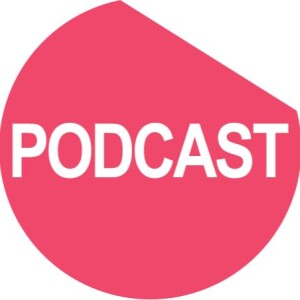
Tuesday May 22, 2018
Tuesday May 22, 2018
Les Perelman makes the case for teachers to do their own research into teaching writing…
“If you think about most professions, think about medicine, they don’t have outside social scientists come in and do their research for them… It is absolutely essential that we do the research for our discipline because we know what the research is supposed to do and we know the questions we want to ask.
…We need to ensure that the things being measured are actually the things we want to measure… this is also about giving teachers language to critique studies which might be reliable but not valid...
The single most important thing to consider when looking at someone else’s research is scepticism. You should start with a null hypothesis and they should have to convince you. You should also always ask: ‘who is funding this research?’
When doing research, the most important thing is to think about the questions you have about your own teaching… All teacher research should be collaborative and teachers should see themselves as both professionals and intellectuals.”
Note for listeners: This episode was originally recorded for the JPL Podcast, hence the references to the JPL Podcast throughout.
For information about contributors and the JPL Podcast, as well as Journal of Professional Learning articles and Centre for Professional Learning courses, please visit our website www.cpl.asn.au/podcasts
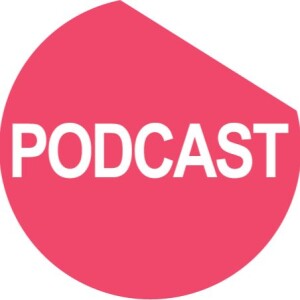
Tuesday May 08, 2018
Tuesday May 08, 2018
Les Perelman wants all of our students to be excellent writers. He shares his knowledge about effective writing teaching and assessment to empower all students and their teachers…
“The people in our society who have power are excellent writers… Writing should be a positive activity where people are expressing themselves, making meaning and gaining pleasure from that… grammar should always be done in context with the student’s writing and what they are doing right.”
When you are thinking about teaching writing focus first on pre-writing, on invention. There are lots of techniques for pre-writing and it is the essential first step. Next, you need to be thinking about the audience, and giving students a real audience, the work needs to be organised with a particular structure and a plan in place, there needs to be opportunity for revision, not just editing but reviewing the whole piece.
The writing should be based on student interest and come from a place that means something to the individual. When we are assessing a student’s writing it needs to be in the context of their work, not an artificial thing done for a mechanical audience but in the moment of the student’s own writing process.
We need to provide students with real situations to write about and we also need to be real ourselves, and open our own writing up to critique. We then create opportunity for peer review, sharing what students have written in a low stakes situation where they can change and improve their work.
Note for listeners: This episode was originally recorded for the JPL Podcast, hence the references to the JPL Podcast throughout.
For information about contributors and the JPL Podcast, as well as Journal of Professional Learning articles and Centre for Professional Learning courses, please visit our website www.cpl.asn.au/podcasts
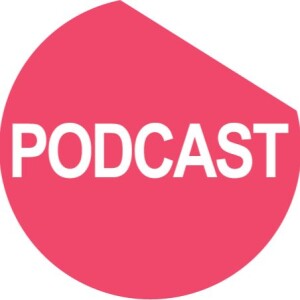
Thursday Mar 15, 2018
Thursday Mar 15, 2018
Jane Sherlock and Deb McPherson share the texts they love and some possibilities for you and the new Stage 6 English courses…
"I love to read and I really think that English has so much potential in helping students… to make our students more discerning readers and viewers…
The Craft of Writing is really like the child of Reading to Write… We have a wonderful combination of texts that reflect and also that demonstrate the craft of writing… and 1984, of course, is a gift to any teacher in these times. It really is important to not overload yourself, but it is also really important to ensure you avail yourself of the riches that are there and that you make use of some of them."
Note for listeners: This episode was originally recorded for the JPL Podcast, hence the references to the JPL Podcast throughout
For information about contributors and the JPL Podcast, as well as Journal of Professional Learning articles and Centre for Professional Learning courses, please visit our website www.cpl.asn.au/podcasts
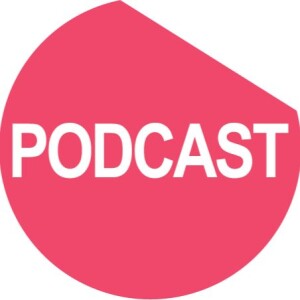
Thursday Mar 01, 2018
Thursday Mar 01, 2018
Joanne Rossbridge and Kathy Rushton want to help you improve your teaching of writing…
“Every school we have worked in have structures for text and teachers help them with that all of the time… teachers often write ‘try to write in a more sophisticated way’ or ‘this is not formal enough’, the student has worked very hard, they have read everything and they are relying on their oral language to fill in those gaps in the structure…
Literacy isn’t a set of skills you can learn from a book… it’s got to be about meaning… those students who you know know their content, but when you read their responses it’s just not quite right, it's actually their literacy that’s holding them back and not their content knowledge.”
Note for listeners: This episode was originally recorded for the JPL Podcast, hence the references to the JPL Podcast throughout
For information about contributors and the JPL Podcast, as well as Journal of Professional Learning articles and Centre for Professional Learning courses, please visit our website www.cpl.asn.au/podcasts
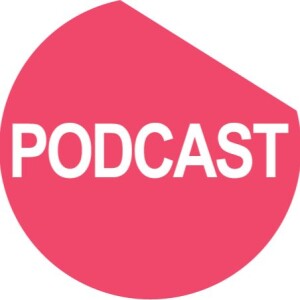
Wednesday Feb 14, 2018
Wednesday Feb 14, 2018
Jenny Williams and Mary-Ellen Betts encourage you to teach your students to read for meaning using the NSW K-6 English syllabus…
“We want every student, in every grade, to understand that reading is about meaning… the syllabus has at its heart: make meaning through language.
…if students come through their whole schooling believing that reading is meaning and understanding, they are able to critically analyse texts at a sophisticated level. If they come through school thinking it is just about words on a page, they are missing about ninety percent of the text.
…there is a connection between what I learn in reading, I use in writing, what I know in writing, I use in reading. We know that learning takes place best within a context, so any way we can find to integrate what we are doing with grammar and spelling and reading is really important.”
Note for listeners: This episode was originally recorded for the JPL Podcast, hence the references to the JPL Podcast throughout
For information about contributors and the JPL Podcast, as well as Journal of Professional Learning articles and Centre for Professional Learning courses, please visit our website www.cpl.asn.au/podcasts
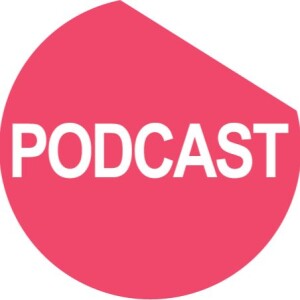
Wednesday Jan 31, 2018
Wednesday Jan 31, 2018
Jim Sturgiss, Tim Sloane and Emma Finlayson discuss approaches to assessment and the new Science syllabus which encourages your students to investigate…
“Teachers can really tailor this new syllabus to suit their students, in their context at their school… the syllabuses have around 30-40 content dot points and this really frees us up to explore ways in which we are going to deliver this more open enquiry based syllabus.
…We are now expected to teach what it means to investigate… It’s science by doing, almost.
…In days gone by you could actually look at the syllabus and you could almost have a teaching sequence just by looking at the syllabus and following it down… but no longer. You now need to program what you are going to do. You need to integrate these depth studies into your teaching and that is going to take a lot more preparation but it is also going to be a lot more rewarding.”
Note for listeners: This episode was originally recorded for the JPL Podcast, hence the references to the JPL Podcast throughout
For information about contributors and the JPL Podcast, as well as Journal of Professional Learning articles and Centre for Professional Learning courses, please visit our website www.cpl.asn.au/podcasts
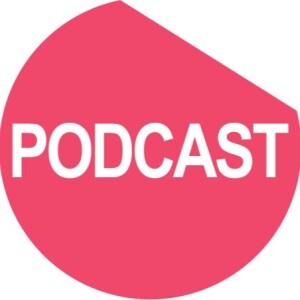
Thursday Nov 16, 2017
Thursday Nov 16, 2017
David Watson explains why planning for the Stage 6 Mathematics Standard syllabus and new forms of assessments are a priority and how to implement these effectively…
“It is often true that there is a right answer and a wrong answer, but investigation is what makes Maths really good… a Mathematician is interested in so much more than getting the right answer.
The re-categorisation of Standard 1, I feel, works very much in our favour as teachers. It makes that course much more relevant and obvious to kids… it’s an opportunity for us and knowing what NESA’s intentions are helps us to implement the new syllabus best.
Many of the topics are very much the same as they were before… there are a few inclusions that are worth noting and that we are unfamiliar with. I found researching these and why they exist is really helpful for understanding why I am teaching it... Networks is by far the biggest change and only included in Year 12… Asking ‘Why would a kid find this useful?’ was a really helpful way for me to understand what the topic is about.
…I'd like to see students being less fearful about our subject.”
Note for listeners: This episode was originally recorded for the JPL Podcast, hence the references to the JPL Podcast throughout
For information about contributors and the JPL Podcast, as well as Journal of Professional Learning articles and Centre for Professional Learning courses, please visit our website www.cpl.asn.au/podcasts
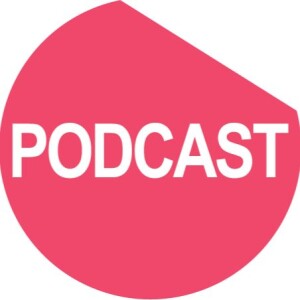
Friday Nov 03, 2017
Friday Nov 03, 2017
Graham Sattler builds your confidence to implement the music elements of the Creative Arts syllabus…
“The benefits music activity brings to the classroom and school communities are particularly significant and it benefits learning interaction with and in all of the key learning areas.
…hearing is the sense that is fully developed when we are born… it is essential for the development of human beings… if that very natural process is interrupted at school, that’s actually a very strange and artificial thing…
There are many simple songs that you can just start singing with the children and they can sing it back, or clap or stamp a steady beat or sing in a round. …to join in successfully, you have to listen very carefully and that critical listening is something that benefits all learning.”
Note for listeners: This episode was originally recorded for the JPL Podcast, hence the references to the JPL Podcast throughout
For information about contributors and the JPL Podcast, as well as Journal of Professional Learning articles and Centre for Professional Learning courses, please visit our website www.cpl.asn.au/podcasts
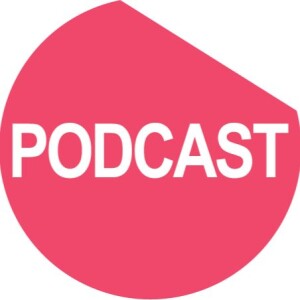
Wednesday Oct 18, 2017
Wednesday Oct 18, 2017
Sue French and Natalie Pierson reflect on their experiences as teachers and leaders of Aboriginal Education. Together, they suggest some approaches to supporting our students and schools.
“I think that Aboriginal Education is in two parts; one part is Aboriginal People and making sure all Aboriginal Peoples have all of the same opportunities as other Australians do… but it’s also about building understanding and knowledge throughout the community, and I believe that until we build that knowledge and respect throughout the wider community, long term very little will change. I think we will struggle and struggle and struggle until this lovely land of ours is free of fear and racism…
… For young Aboriginal teachers, I say, ‘focus on your craft and have a look at the things you need to do to get better at teaching’…
For schools, having a look at what’s mandated, what’s mandatory and what’s important? …What do staff already know? What is happening and what else can we do? It’s really important to do a little bit of an audit and evaluation of what we are doing and what’s working and then go from there…”
Note for listeners: This episode was originally recorded for the JPL Podcast, hence the references to the JPL Podcast throughout
For information about contributors and the JPL Podcast, as well as Journal of Professional Learning articles and Centre for Professional Learning courses, please visit our website www.cpl.asn.au/podcasts
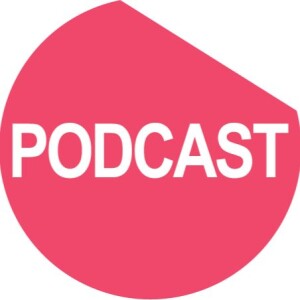
Thursday Sep 07, 2017
Thursday Sep 07, 2017
Sandra Rowan and Mary-Ellen Betts understand that wise assessment should inform good teaching using the NSW syllabuses.
“For our students, it would be nice for them to be learning new things because they have mastered their existing learning…
…assessment is an important part of teaching in that it acknowledges the skills and behaviours our students bring to the classroom… it shouldn’t be, okay, I assess on this week and then I never do it again for 5 weeks… sometimes we get caught up in gathering a whole lot of data that isn’t relevant against student learning outcomes…
…the NESA advice on assessment gives an excellent framework for what assessment can and should look like in our schools and it concerns me that at times we deviate, and collect numbers for the sake of numbers…”
Note for listeners: This episode was originally recorded for the JPL Podcast, hence the references to the JPL Podcast throughout
For information about contributors and the JPL Podcast, as well as Journal of Professional Learning articles and Centre for Professional Learning courses, please visit our website www.cpl.asn.au/podcasts

The NSW Teachers Federation’s (Federation) Centre for Professional Learning (CPL) provides high quality, research-based professional learning and support for Federation members in a range of pedagogical and school based curriculum areas.
The courses and conferences provide practical, tested and well researched approaches to issues that teachers face every day at the school level. The CPL aims to offer programs that are useful across the spectrum of a teacher’s career from the early years of teaching to the experienced and leadership levels. Courses and conferences are conducted in-person, as well as online. The CPL adds an important extra dimension to the union’s standing both with its members and in the public domain. It makes a positive contribution to the Federation’s ongoing efforts to raise the status of the teaching profession and promote the public education system in the wider NSW community.




